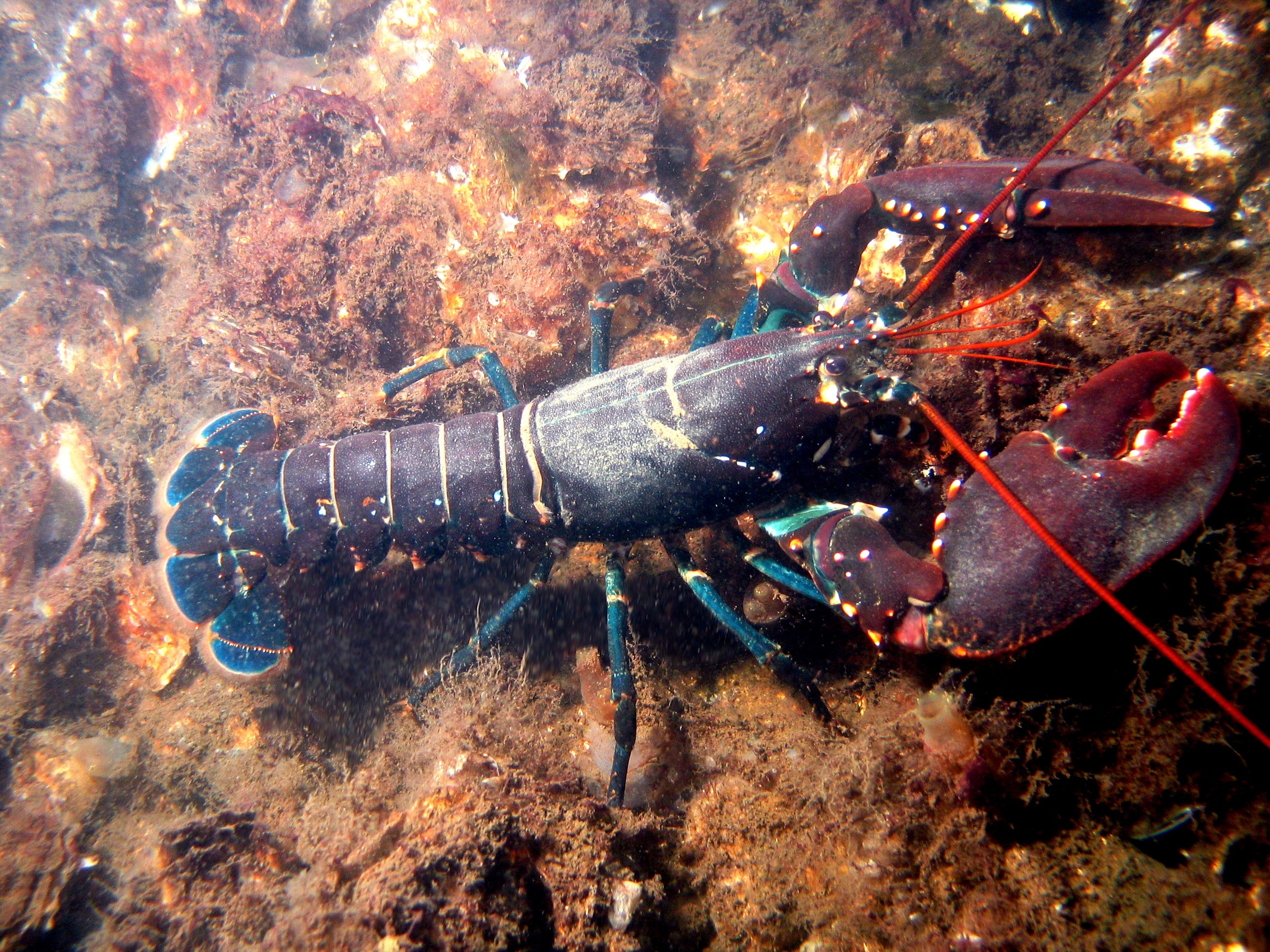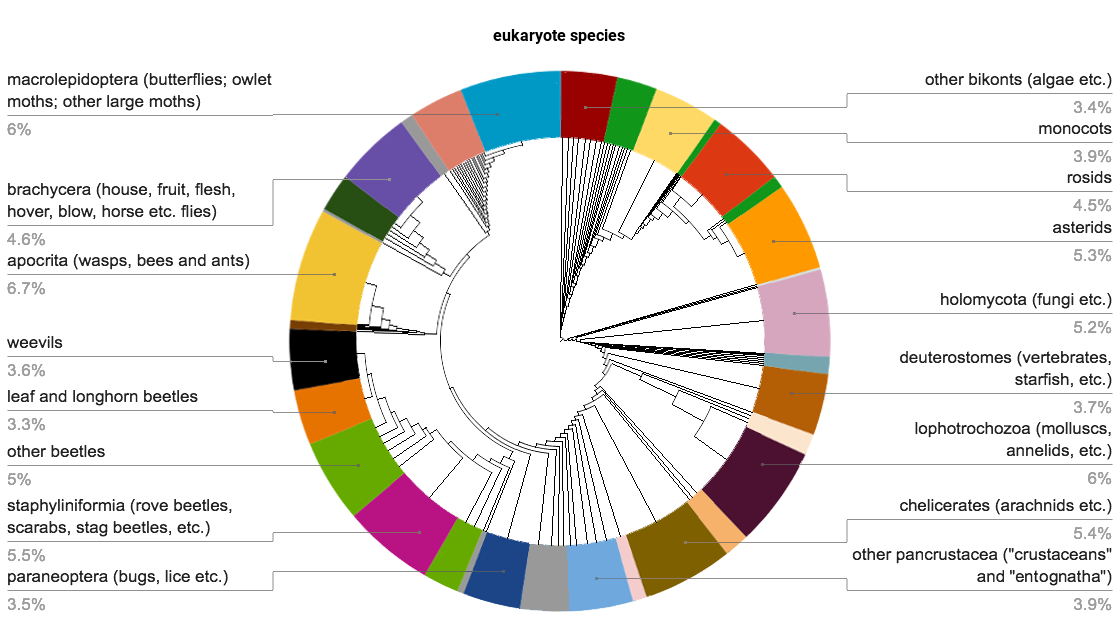|
Jonathan Birch (philosopher)
Jonathan Birch is a British philosopher and professor of philosophy at the London School of Economics and Political Science. His work addresses the philosophy of biology and behavioural sciences, especially questions concerning sentience, bioethics, animal welfare, and the evolution of social behaviour and social norms. In 2017, he published the book ''The Philosophy of Social Evolution,'' which explores social behaviour in everything from microorganisms to humans and higher primates. In 2021, he was the Principal Investigator of a review that led the UK to recognize cephalopods and decapod crustaceans as sentient.Commentary: * * * * * In 2024, he published the book ''The Edge of Sentience,'' which examines the concept of sentience, whether artificial intelligence or animals like Insect, insects may be sentient, and how to handle the Ethics of uncertain sentience, uncertainty. Education Birch read for a BA (Hons), Bachelor of Arts with Honours degree, honours in Natural Scien ... [...More Info...] [...Related Items...] OR: [Wikipedia] [Google] [Baidu] |
University Of Cambridge
The University of Cambridge is a Public university, public collegiate university, collegiate research university in Cambridge, England. Founded in 1209, the University of Cambridge is the List of oldest universities in continuous operation, world's third-oldest university in continuous operation. The university's founding followed the arrival of scholars who left the University of Oxford for Cambridge after a dispute with local townspeople. The two ancient university, ancient English universities, although sometimes described as rivals, share many common features and are often jointly referred to as Oxbridge. In 1231, 22 years after its founding, the university was recognised with a royal charter, granted by Henry III of England, King Henry III. The University of Cambridge includes colleges of the University of Cambridge, 31 semi-autonomous constituent colleges and List of institutions of the University of Cambridge#Schools, Faculties, and Departments, over 150 academic departm ... [...More Info...] [...Related Items...] OR: [Wikipedia] [Google] [Baidu] |
Animal Welfare (journal)
''Animal Welfare'' is a quarterly, peer-reviewed scientific journal covering studies on the welfare of animals, whether in captivity (e.g. on farms, in laboratories, zoos and as companions) or in the wild. Its scope includes animal welfare science, animal cognition, ethology, behavioural ecology, evolution of behaviour, sociobiology, behavioural physiology, population biology, neurophysiology and abnormal behaviour. It was established in 1992 and is published by the Universities Federation for Animal Welfare. The editor-in-chief is James K. Kirkwood (Universities Federation for Animal Welfare). Abstracting and indexing The journal is abstracted and indexed in: According to the ''Journal Citation Reports'', the journal has a 2012 impact factor The impact factor (IF) or journal impact factor (JIF) of an academic journal is a type of journal ranking. Journals with higher impact factor values are considered more prestigious or important within their field. The Impact Factor ... [...More Info...] [...Related Items...] OR: [Wikipedia] [Google] [Baidu] |
Junior Research Fellowships
A Junior Research Fellowship (JRF), sometimes known as a Research Fellowship or Fellow by Examination, is a postdoctoral fellowship for early-career scholars and recent PhD/DPhil graduates at the University of Oxford and the University of Cambridge. JRFs are among the most highly competitive, prestigious postdoctoral fellowships in the United Kingdom. The fellowships are also seen as direct pathways to tenure-track positions. History Initially, the term research fellow referred to a junior researcher, who worked on a specific project on a temporary basis. They tended to be paid either from central university funds or by an outside organisation such as a charity or company, or through an external grant-awarding body such as a research council or a royal society, for example in the Royal Society University Research Fellowship. They were often reserved for unmarried researchers, although this prohibition was lifted in the mid-nineteenth-century reforms. During and after the Firs ... [...More Info...] [...Related Items...] OR: [Wikipedia] [Google] [Baidu] |
Tim Lewens
Tim Lewens (born 29 June 1974) is a professor in the history and philosophy of biology, medicine, and bioethics at the Department of History and Philosophy of Science at the University of Cambridge. Lewens is a Fellow of Clare College, where he serves as Director of Studies in Philosophy and he is a member of the academic staff and lecturer in the Department of History and Philosophy of Science (HPS). Background Lewens completed his PhD thesis at the Department of HPS, Cambridge University in 2001. He became a lecturer in History and Philosophy of Science at Cambridge soon after completing his doctoral thesis. He now serves as a governor at Exeter School where he was formerly a pupil. He was member of the Nuffield Council on Bioethics from 2009 to 2015 and a member of the Council's Working Party on ''human bodies in medicine and research'' (report published autumn 2011). Research Lewens has written and lectured extensively on evolution and his book on this subject, ''Organisms ... [...More Info...] [...Related Items...] OR: [Wikipedia] [Google] [Baidu] |
Philosophy Of Science
Philosophy of science is the branch of philosophy concerned with the foundations, methods, and implications of science. Amongst its central questions are the difference between science and non-science, the reliability of scientific theories, and the ultimate purpose and meaning of science as a human endeavour. Philosophy of science focuses on metaphysical, epistemic and semantic aspects of scientific practice, and overlaps with metaphysics, ontology, logic, and epistemology, for example, when it explores the relationship between science and the concept of truth. Philosophy of science is both a theoretical and empirical discipline, relying on philosophical theorising as well as meta-studies of scientific practice. Ethical issues such as bioethics and scientific misconduct are often considered ethics or science studies rather than the philosophy of science. Many of the central problems concerned with the philosophy of science lack contemporary consensus, including whether ... [...More Info...] [...Related Items...] OR: [Wikipedia] [Google] [Baidu] |
History And Philosophy Of Science
The history and philosophy of science (HPS) is an academic discipline that encompasses the philosophy of science and the history of science. Although many scholars in the field are trained primarily as either historians or as philosophers, there are degree-granting departments of HPS at several prominent universities. Though philosophy of science and history of science are their own disciplines, history and philosophy of science is a discipline in its own right. Philosophy of science is a branch of philosophy concerned with the foundations, methods, and implications of science. The central questions of this study concern what qualifies as science, the reliability of scientific theories, and the ultimate purpose of science. This discipline overlaps with metaphysics/ontology and epistemology, for example, when it explores the relationship between science and truth. Philosophy of science focuses on metaphysical, epistemic and semantic aspects of science. Ethical issues such as bioet ... [...More Info...] [...Related Items...] OR: [Wikipedia] [Google] [Baidu] |
Natural Sciences (Cambridge)
The Natural Sciences Tripos is the framework within which most of the science at the University of Cambridge is taught. The tripos includes a wide range of Natural Sciences from physics, astronomy, and geoscience, to chemistry and biology, which are taught alongside the history and philosophy of science. The tripos covers several courses which form the University of Cambridge system of Tripos. It is known for its broad range of study in the first year, in which students cannot study just one discipline, but instead must choose three courses in different areas of the natural sciences and one in mathematics. As is traditional at Cambridge, the degree awarded after Part II (three years of study) is a Bachelor of Arts (BA). A Master of Natural Sciences degree (MSci) is available to those who take the optional Part III (one further year). It was started in the 19th century. Teaching Teaching is carried out by 16 different departments. Subjects offered in Part IA in 2019 are Biology ... [...More Info...] [...Related Items...] OR: [Wikipedia] [Google] [Baidu] |
Honours Degree
Honours degree has various meanings in the context of different degrees and education systems. Most commonly it refers to a variant of the undergraduate bachelor's degree containing a larger volume of material or a higher standard of study, or both, rather than an "ordinary", "general" or "pass" bachelor's degree. Honours degrees are sometimes indicated by "Hons" after the degree abbreviation, with various punctuation according to local custom, e.g. "BA (Hons)", "B.A., Hons", etc. In Canada, honours degrees may be indicated with an "H" preceding the degree abbreviation, e.g. "HBA" for Honours Bachelor of Arts or Honours Business Administration. Examples of honours degree include the ''honors bachelor's degree'' in the United States; the ''bachelor's degree with honours'' in the United Kingdom, the Netherlands, Bangladesh, Hong Kong, and India; the ''honours bachelor's degree'' in Ireland; the ''bachelor with honours'' and ''bachelor honours degree'' in New Zealand; the ''bach ... [...More Info...] [...Related Items...] OR: [Wikipedia] [Google] [Baidu] |
BA (Hons)
A Bachelor of Arts (abbreviated B.A., BA, A.B. or AB; from the Latin ', ', or ') is the holder of a bachelor's degree awarded for an undergraduate program in the liberal arts, or, in some cases, other disciplines. A Bachelor of Arts degree course is generally completed in three or four years, depending on the country and institution. * Degree attainment typically takes five or more years in Argentina, Brazil, Chile, and Peru. * Degree attainment typically takes four years in Afghanistan, Armenia, Azerbaijan, Bangladesh, Brunei, Bulgaria, Canada (except Quebec), China, Egypt, Finland, Georgia, Ghana, Greece, Hong Kong, Indonesia, India, Iran, Iraq, Ireland, Jamaica, Japan, Kazakhstan, Kenya, Kuwait, Latvia, Lebanon, Lithuania, Malaysia, Mexico, Mongolia, Myanmar, Nepal, the Netherlands, Nigeria, Pakistan, the Philippines, Qatar, Russia, Saudi Arabia, Scotland, Serbia, Singapore, South Africa, South Korea, Spain, Sri Lanka, Taiwan, Thailand, Turkey, Ukraine, the United State ... [...More Info...] [...Related Items...] OR: [Wikipedia] [Google] [Baidu] |
Ethics Of Uncertain Sentience
The ethics of uncertain sentience is an area of applied ethics concerned with how to treat individuals whose capacity for sentience—the ability to subjectively feel, perceive, or experience—remains scientifically or philosophically uncertain. The topic is particularly significant in animal ethics, where questions have arisen regarding the moral status of animals such as crustaceans, insects, and fish, and whether they can experience pain. It also applies to debates in neuroethics and the ethics of artificial intelligence. A common approach to these issues involves invoking the precautionary principle, which holds that in cases of uncertainty, it is morally preferable to assume sentience rather than risk causing harm to potentially sentient beings. Views Animal ethics David Foster Wallace in his 2005 essay " Consider the Lobster" investigated the potential sentience and capacity of crustaceans to experience pain and the resulting ethical implications of eating them. In ... [...More Info...] [...Related Items...] OR: [Wikipedia] [Google] [Baidu] |
Insect
Insects (from Latin ') are Hexapoda, hexapod invertebrates of the class (biology), class Insecta. They are the largest group within the arthropod phylum. Insects have a chitinous exoskeleton, a three-part body (Insect morphology#Head, head, Thorax (insect anatomy), thorax and abdomen (insect anatomy), abdomen), three pairs of jointed Arthropod leg, legs, compound eyes, and a pair of antenna (biology), antennae. Insects are the most diverse group of animals, with more than a million described species; they represent more than half of all animal species. The insect nervous system consists of a insect brain, brain and a ventral nerve cord. Most insects reproduce Oviparous, by laying eggs. Insects Respiratory system of insects, breathe air through a system of Spiracle (arthropods), paired openings along their sides, connected to Trachea#Invertebrates, small tubes that take air directly to the tissues. The blood therefore does not carry oxygen; it is only partly contained in ves ... [...More Info...] [...Related Items...] OR: [Wikipedia] [Google] [Baidu] |


